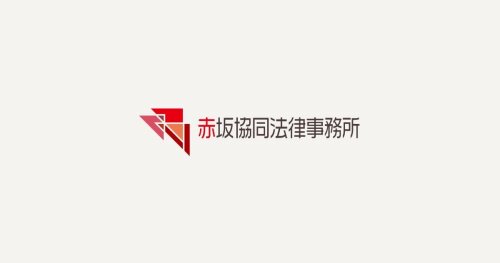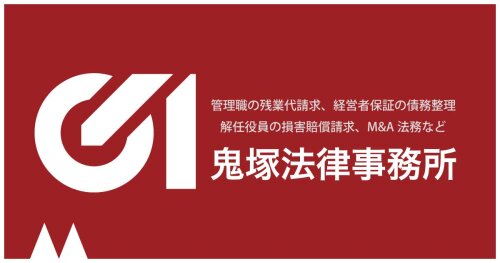Best Antitrust Litigation Lawyers in Fukuoka
Share your needs with us, get contacted by law firms.
Free. Takes 2 min.
List of the best lawyers in Fukuoka, Japan
About Antitrust Litigation Law in Fukuoka, Japan
Antitrust litigation in Fukuoka, Japan, centers on disputes and legal actions related to the enforcement of fair competition laws. These laws are designed to maintain market integrity by preventing unlawful business practices such as monopolies, price fixing, bid rigging, and unfair trade restrictions. Fukuoka, as a major economic hub in Kyushu, sees active commerce across various industries, increasing the importance of antitrust oversight. Both local companies and international businesses operating in Fukuoka are subject to Japanese antitrust regulations, primarily governed by the Act on Prohibition of Private Monopolization and Maintenance of Fair Trade (AMA). Litigants may be companies, consumers, or competitors seeking remedies for anticompetitive conduct.
Why You May Need a Lawyer
There are several situations in which you may require legal assistance with antitrust litigation in Fukuoka. For example, if your business is accused of engaging in anticompetitive behavior, such as colluding with competitors or abusing market dominance, legal counsel is essential. Likewise, if your company suffers financial harm from another company's unfair practices, a lawyer can help you seek damages or an injunction. Consumers and competitors can also benefit from legal guidance if they suspect unfair restrictions or price manipulation by businesses. Given the complexity of antitrust laws and the potentially significant financial penalties involved, having a specialized lawyer ensures your rights are protected and your case is fairly represented.
Local Laws Overview
Antitrust litigation in Fukuoka is primarily governed by the national Act on Prohibition of Private Monopolization and Maintenance of Fair Trade (AMA). This act prohibits private monopolization, unreasonable restraint of trade, and unfair trade practices. The Japan Fair Trade Commission (JFTC) is tasked with enforcement, including investigations, administrative orders, and the imposition of fines. Fukuoka businesses must comply with these national laws, but local economic activities and business practices can influence how antitrust laws are interpreted and enforced in the region. The Fukuoka District Court is the primary venue for antitrust litigation, and proceedings are conducted in accordance with Japanese civil procedure. Victims may claim damages or seek injunctions to stop unlawful conduct, but the process can be intricate, often requiring specialized legal expertise to navigate successfully.
Frequently Asked Questions
What is antitrust litigation?
Antitrust litigation refers to legal proceedings involving disputes about unfair competition, such as cartels, price fixing, abuse of a dominant position, and other actions that harm fair market competition.
Who enforces antitrust laws in Fukuoka?
Antitrust laws in Fukuoka are enforced by the Japan Fair Trade Commission (JFTC), though investigations may sometimes involve local police and authorities for criminal elements.
What kinds of business practices are prohibited?
Prohibited practices include price fixing, bid rigging, abuse of market dominance, monopolization efforts, and unfair trade practices like exclusive dealings or discriminatory pricing.
Can individuals file an antitrust lawsuit?
Yes, individuals, companies, or groups who have suffered harm due to anticompetitive practices can file a lawsuit seeking damages or an injunction under Japanese law.
What penalties can be imposed for violating antitrust laws?
Penalties can include administrative surcharges, criminal fines, imprisonment, and civil damages payable to affected parties.
Do I need a lawyer for an antitrust case?
It is strongly recommended to consult a lawyer since antitrust litigation involves complex legal and economic analysis, strict procedural rules, and potential for significant liability.
How long does antitrust litigation take in Fukuoka?
The timeline varies based on the complexity of the case, but such cases can often extend over several months to years due to investigation and court procedures.
What evidence is required for an antitrust case?
Evidence may include contracts, internal communications, pricing data, market analyses, and witness testimonies establishing the existence of prohibited conduct and resulting damages.
Are settlements possible in antitrust cases?
Yes, parties may reach out-of-court settlements at any stage, provided they do not involve further illegal conduct or violate public interest.
Can foreign companies be involved in antitrust litigation in Fukuoka?
Yes, foreign companies operating in Japan are subject to Japanese antitrust laws and may become parties to litigation if their actions affect the Japanese market.
Additional Resources
If you require more information about antitrust litigation, the following resources may be useful: - Japan Fair Trade Commission (JFTC) - The official regulatory authority for competition law enforcement in Japan. - Fukuoka Bar Association - Offers a directory of local lawyers, including those specializing in competition law. - Fukuoka Prefectural Government - Provides consumer protection and business information. - Local business chambers - Can provide guidance on compliance and current best practices for businesses.
Next Steps
If you believe you are involved in or affected by anticompetitive practices in Fukuoka, it is important to seek legal advice as soon as possible. Start by gathering any documents or information related to the suspected conduct. Reach out to a lawyer specializing in antitrust or competition law, preferably one with experience in litigation. They can help assess your situation, explain your rights, and advise on possible legal remedies. You can contact the Fukuoka Bar Association for referrals or schedule a consultation to explore your options. Remember, timely action is crucial in these cases to preserve your legal rights and secure the best possible outcome.
Lawzana helps you find the best lawyers and law firms in Fukuoka through a curated and pre-screened list of qualified legal professionals. Our platform offers rankings and detailed profiles of attorneys and law firms, allowing you to compare based on practice areas, including Antitrust Litigation, experience, and client feedback.
Each profile includes a description of the firm's areas of practice, client reviews, team members and partners, year of establishment, spoken languages, office locations, contact information, social media presence, and any published articles or resources. Most firms on our platform speak English and are experienced in both local and international legal matters.
Get a quote from top-rated law firms in Fukuoka, Japan — quickly, securely, and without unnecessary hassle.
Disclaimer:
The information provided on this page is for general informational purposes only and does not constitute legal advice. While we strive to ensure the accuracy and relevance of the content, legal information may change over time, and interpretations of the law can vary. You should always consult with a qualified legal professional for advice specific to your situation.
We disclaim all liability for actions taken or not taken based on the content of this page. If you believe any information is incorrect or outdated, please contact us, and we will review and update it where appropriate.












